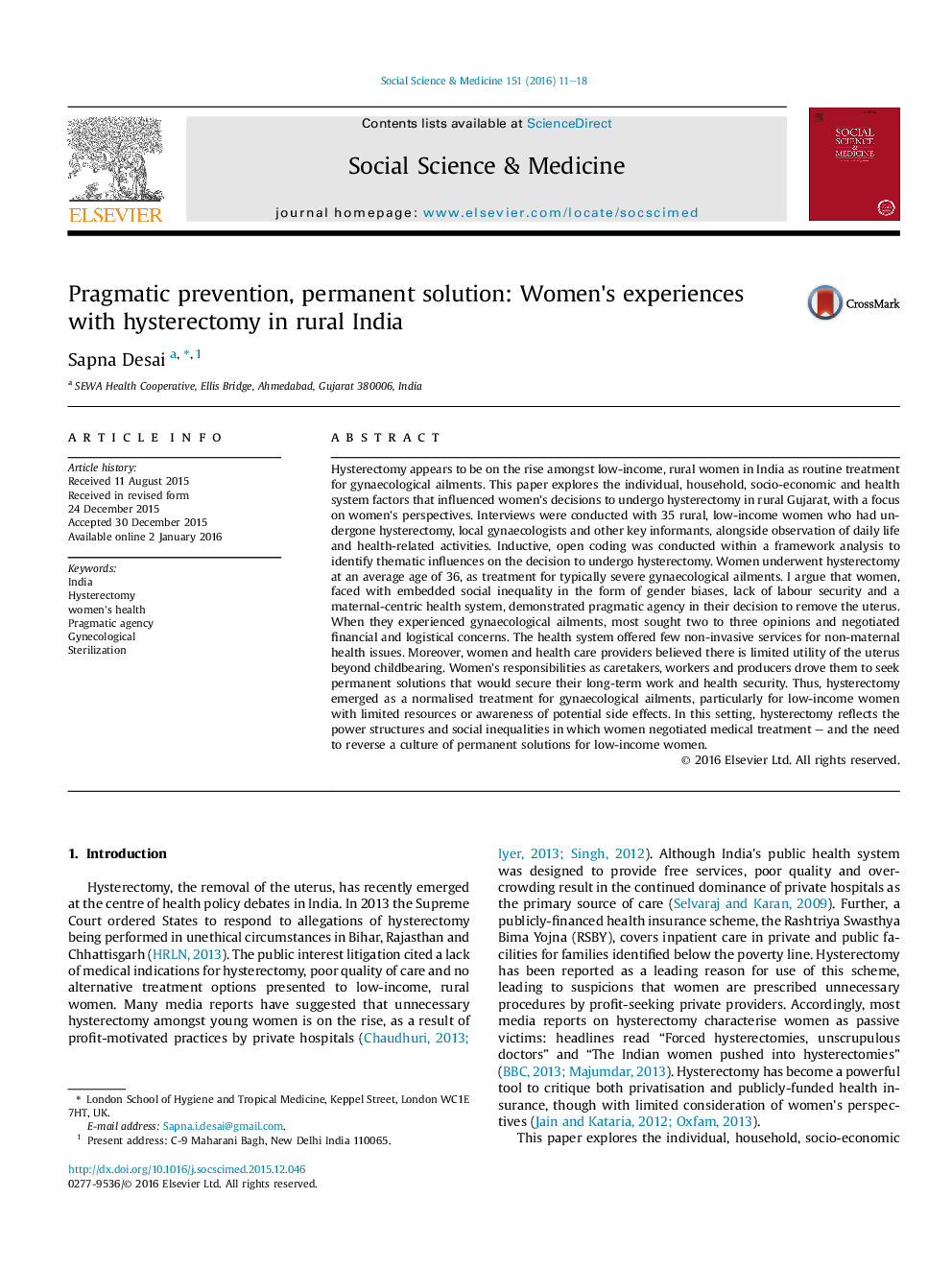| کد مقاله | کد نشریه | سال انتشار | مقاله انگلیسی | نسخه تمام متن |
|---|---|---|---|---|
| 7330654 | 1476018 | 2016 | 8 صفحه PDF | دانلود رایگان |
عنوان انگلیسی مقاله ISI
Pragmatic prevention, permanent solution: Women's experiences with hysterectomy in rural India
دانلود مقاله + سفارش ترجمه
دانلود مقاله ISI انگلیسی
رایگان برای ایرانیان
کلمات کلیدی
موضوعات مرتبط
علوم پزشکی و سلامت
پزشکی و دندانپزشکی
سیاست های بهداشت و سلامت عمومی
پیش نمایش صفحه اول مقاله

چکیده انگلیسی
Hysterectomy appears to be on the rise amongst low-income, rural women in India as routine treatment for gynaecological ailments. This paper explores the individual, household, socio-economic and health system factors that influenced women's decisions to undergo hysterectomy in rural Gujarat, with a focus on women's perspectives. Interviews were conducted with 35 rural, low-income women who had undergone hysterectomy, local gynaecologists and other key informants, alongside observation of daily life and health-related activities. Inductive, open coding was conducted within a framework analysis to identify thematic influences on the decision to undergo hysterectomy. Women underwent hysterectomy at an average age of 36, as treatment for typically severe gynaecological ailments. I argue that women, faced with embedded social inequality in the form of gender biases, lack of labour security and a maternal-centric health system, demonstrated pragmatic agency in their decision to remove the uterus. When they experienced gynaecological ailments, most sought two to three opinions and negotiated financial and logistical concerns. The health system offered few non-invasive services for non-maternal health issues. Moreover, women and health care providers believed there is limited utility of the uterus beyond childbearing. Women's responsibilities as caretakers, workers and producers drove them to seek permanent solutions that would secure their long-term work and health security. Thus, hysterectomy emerged as a normalised treatment for gynaecological ailments, particularly for low-income women with limited resources or awareness of potential side effects. In this setting, hysterectomy reflects the power structures and social inequalities in which women negotiated medical treatment - and the need to reverse a culture of permanent solutions for low-income women.
ناشر
Database: Elsevier - ScienceDirect (ساینس دایرکت)
Journal: Social Science & Medicine - Volume 151, February 2016, Pages 11-18
Journal: Social Science & Medicine - Volume 151, February 2016, Pages 11-18
نویسندگان
Sapna Desai,